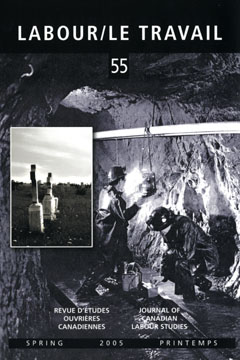Abstract
In the fall of 1873 Joseph Arch, the President of the England’s National Agricultural Labourers’ Union (NALU), embarked on a mission to scout Canada as an emigration destination. He was received with much hospitality in Canada. Large-scale migration of British farm-workers had the support of an extraordinary consensus between the NALU, Canadian political and business élites, and the Toronto labour leaders who wielded enormous influence over the labour movement in Ontario. The consensus was the result of developments in British agricultural unionism, Ontario’s farming sector, Canada’s immigration policy, and the Toronto labour establishment’s approach to immigration. However, during the mission, tensions emerged between Arch and the Toronto labour establishment that strained the appearance of international union solidarity. These tensions revealed the treacherous nature of a relationship between labour leaders in an immigrant-receiving country, and an organization, even a union, looking to promote emigration.
Résumé
En automne 1873, Joseph Arch, président du Syndicat national des travailleurs agricoles d’Angleterre, s’est embarqué dans une mission visant à découvrir le Canada comme destination d’émigration. Il a été reçu avec beaucoup d’hospitalité au Canada. La migration de grande envergure des travailleurs agricoles britanniques avait l’appui d’un consensus extraordinaire entre le syndicat anglais, les élites politiques et commerciales canadiennes et les chefs syndicalistes torontois qui avaient exercé d’énorme influence sur le mouvement syndical en Ontario. Le consensus était le résultat des développements du syndicalisme agricole britannique, du secteur agricole de l’Ontario, de la politique d’immigration canadienne et de l’approche à l’immigration des syndicats torontois. Toutefois, durant la mission, des tensions se sont déclarées entre Arch et les syndicats torontois, ce qui a mis à l’épreuve l’apparence de la solidarité syndicale internationale. Ces tensions ont révélé la nature perfide d’une relation entre les chefs syndicalistes dans un pays qui recevait les immigrants et un organisme, même un syndicat, qui cherchait à promouvoir l’émigration.
